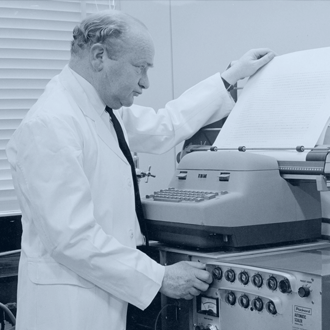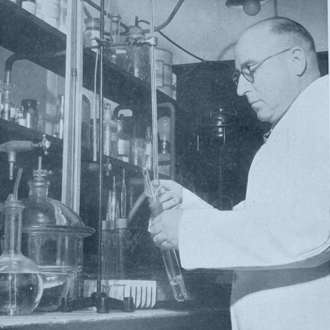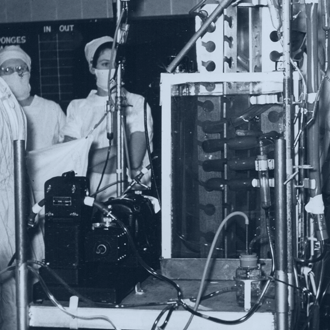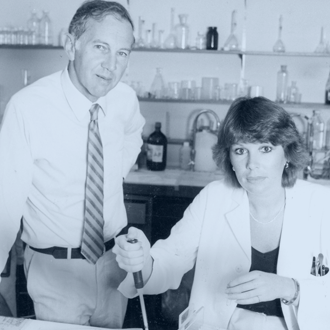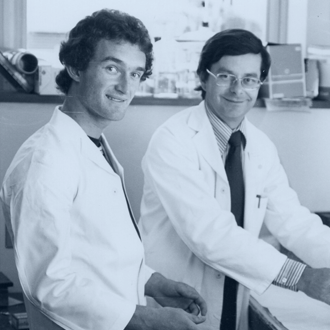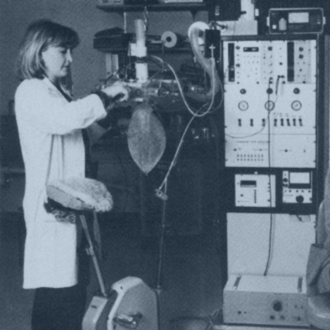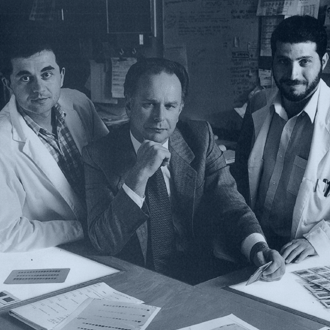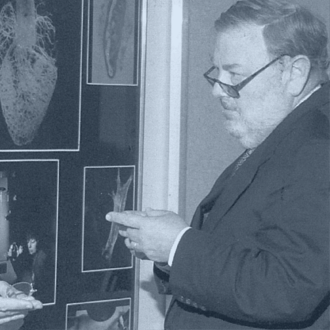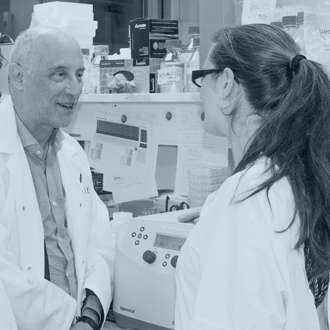Since 1926, the Baker Institute has established a strong track record of scientific discovery and translation of these findings to improve the prevention, diagnosis and treatment of cardiovascular disease, diabetes and related conditions.
Here is some of the cutting-edge work that has been undertaken by our researchers.
-
Two types of diabetes
Providing evidence of the two types of diabetes — a step that changed the concepts, research and treatment of diabetes.
More info -
Blood coagulation
Advanced understanding of blood coagulation that led to improved treatment in areas including cardiovascular surgery and haemophilia.
More info -
Open heart surgery
Conducted pivotal experimental studies that paved the way for open heart surgery at The Alfred Hospital.
More info -
Kidney disease and pain medication
Providing evidence of the link between compound analgesics and kidney disease that led to the ban of these painkillers.
More info -
Omega-3 fatty acids
Establishing link between omega-3 fatty acids in fish and reduction in coronary heart disease by demonstrating how a diet rich in fish oil lowers blood triglycerides and improves elasticity of large arteries.
More info -
Predicted diabetes epidemic
Pioneering research in Pacific and Indian Ocean populations was critical in both the global prediction of the current diabetes epidemic and demonstration of the profound impact of lifestyle change on type 2 diabetes.
More info -
Treatment of hypertension
Development of a method for measuring activity of the human sympathetic nervous system, knowledge that supported the introduction of beta blockers.
More info -
Benefits of regular exercise
Demonstrated that regular exercise lowers blood pressure and cardiovascular risk, and mechanistic insight into the physiologic basis for such action.
More info -
Blood vessel biology
Studies in blood vessel biology have resulted in new treatments for pulmonary hypertension and safer therapeutic strategies targeting angiotensin.
More info -
High blood pressure
Provided insight into the role of aldosterone, the salt-retaining hormone, and the mineralocorticoid receptors in organs such as the heart and kidney.
More info -
Metabolic memory
Explained the molecular process for the phenomenon of ‘metabolic memory’ — the process whereby previous episodes of poor glucose control lead to cardiovascular injury in diabetes.
More info -
Sedentary behaviour
Development of a body of observational and experimental evidence pointing to the clinical and population-health significance of sedentary behaviour — too much sitting as distinct from too little exercise.
More info


